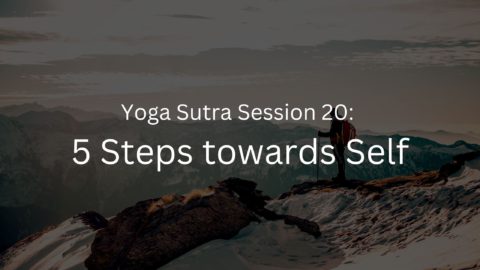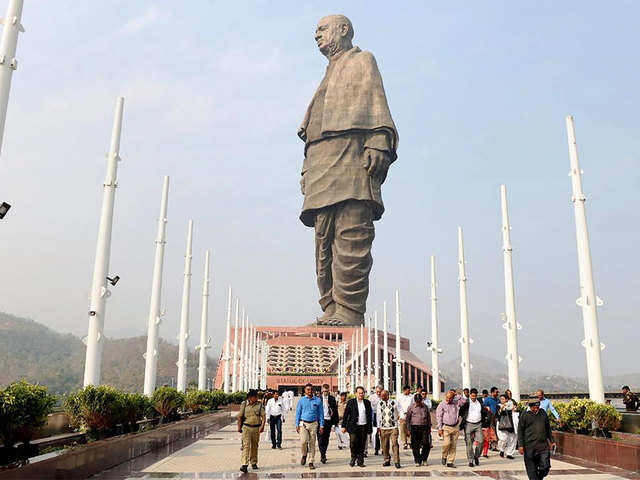Now, try to understand Patanjali’s sutras.
THE DISASSOCIATION OF THE SEER AND THE SEEN WHICH IS BROUGHT ABOUT BY THE DISPERSION OF IGNORANCE IS THE REMEDY THAT BRINGS LIBERATION.
From where to begin?… Because Patanjali is always interested in the beginning. If the beginning is not clear we may go on talking about what liberation is, but that will remain a talk. The beginning has to be absolutely clear – every step clean-cut so that you can move from where you are. If you listen to Lao Tzu, Lao Tzu talks from the peak, the highest peak possible to human consciousness; if you ask Tilopa, he answers from where he is. If you ask Patanjali, he talks from where you are. He does not say anything about himself; he simply talks from where you are, the beginning. He is more practical; Lao Tzu is more true. Patanjali is more practical.
Somebody asked why Osho cannot continue talking on Lao Tzu.
Because of you. If I were alone that would be good, perfect; but you are also there, and I cannot forget you. When I am talking about Lao Tzu I have to leave you far behind. Then immediately I start talking about Patanjali, or somebody, who talks about you and your first steps. There is a vast difference.
Lao Tzu you can enjoy but you cannot practice, because he doesn’t say anything about practice. He has achieved and he talks about his achievement – from that vision. Things are totally different. You may be hypnotized by that vision, that vision may have a great appeal to you, but it will remain a poetry. It will remain a romance: it will not become empirical; it will not become practical. You will not be able to find the way from where to go through Lao Tzu. Everything is perfectly true, but from where to go? The moment you become aware of yourself, Lao Tzu is somewhere so far, so distant….
Patanjali is just by your side. You can move with him hand in hand. He talks about the beginning.
“The disassociation of the seer and the seen….” So the first step is to remember, to be mindful, that you are separate from the seen: whatsoever you see you are the seer. The tree is there, so green and so beautiful, blossoming – but the tree is an object; you are the subject. Separate them. Know well that the tree is there and you are here; the tree is out, you are in; the tree is the seen and you are the seer. It is difficult to remember because the tree is so beautiful and the flower so magnetic, they hypnotize you. You would like to be lost. You would like to forget yourself.
In fact you are always in search of forgetting yourself, trying to escape from yourself. You are so fed up with yourself…. Nobody wants to remain with oneself. A thousand and one paths you create just to escape from yourself. When you say, “The tree is beautiful,” you have escaped; you have forgotten yourself.
When you see a beautiful woman passing by, you have forgotten yourself. The seer is lost in, the seen.
Don’t lose the seer in the, seen. Many times it will be lost – reclaim it. Reclaim it again and again. By and by you will become steady. By and by, you will have strength. Anything passes by, anything whatsoever – even if God passes by – Patanjali says, “Remember that you are the seer and he is the seen.” Don’t forget this distinction, because only with this distinction will your vision become clear, will your consciousness concentrate, will your awareness become consolidated, will your being become rooted and centered.
Go again and again, fall again and again to self-remembering. Remember, self-remembering is not ego-remembering. It is not to remember that “I am,” no. It is to remember that inside is the seer and outside is the seen. It is not a question of “I”; it is a question of consciousness and object of consciousness. The disassociation of the seer and the seen which is brought about by the dispersion of ignorance is the remedy that brings liberation. The more you become aware of everything that surrounds you, by and by, you will see that not only the world surrounds you, your own body surrounds you. That too is an object. I can see my hand, I can feel my hand, so I must be separate. If I were the body then there would be no way to feel the body – who will feel it? To know, separation is needed. All knowledge, all knowing, separates. All ignorance is forgetfulness of the separation. When you become aware that the body is also the other, your consciousness is settling at home.
Then you become aware that your emotions, your thoughts – they are also “the other,” because you can see them. You have seen them again and again, but you don’t remember that you are separate. You see a thought passing on the screen of the mind. It is just like a cloud passing in the sky: you see a white cloud passing or a black cloud passing, moving towards the north. When a thought passes just look where it is going, from where it is coming. Watch it. Don’t get involved; don’t become one with it. That getting involved, becoming one with it, is called identification, tadatmya: and that is ignorance. Identified, you are in ignorance.
Unidentified – separate, witnessing, watching – you are moving towards awareness.
This is the method, what Upanishads call the method of “neti, neti,” the method of elimination: you see the world – then I am not the world; you see the body – then I am not the body; you see the thought – then I am not the thought; you see the emotion – then I am not the emotion. You go on, go on, go on… a moment comes, only the seer is left; all seen disappeared, and with the seen, the whole world.
In that aloneness of consciousness there is tremendous beauty. tremendous simplicity, tremendous innocence, austerity. Sitting in that consciousness, centered in that consciousness there is no worry, not a worry at all – no anxiety, no anguish, no suffering, no hate, no love, no anger. Everything has disappeared; only, you are. Even the feeling that “I am” is not there, because if you feel “I am” you can become aware of the feeling – that is separate from you. You are.
Simply, you are. So simple that there is no awareness that “I am,” just an “amness,” being. That is the definition of being. It is not a question of philosophy, how to define it; it is a question of experiencing, how to experience it.
All eliminated, all dreams dissolved, the whole world disappeared – you sitting in yourself, not doing anything, not even a ripple of thought, not even a breeze of emotion passes you – everything is so still and so silent: time has stopped, space disappeared. This is the transcendental moment. In; this moment, for the first time, you are no longer ignorant. This is how you grow in being. This is how you become a knower, not a knowledgeable person. You have not gathered any information; on the contrary, you have separated all that was around you.
Totally nude, naked, like a sunya, a void, you are.
Patanjali says this is liberation from ignorance. So the first step is to go on separating. Whatsoever you see, always remember the seer, that “I am separate,” and immediately, a sort of silence will surround you. The moment you remember, “I am the seer and not the seen,” instantly, you are no longer part of this world – instantly, you have transcended.
You may forget again. It is very difficult to go on remembering in the beginning, but even in twenty-four hours if you can remember for one single moment, that will be enough nourishment. And by and by more moments will become possible. A day comes when you remember so constantly that the very effort to remember is not needed: it becomes just natural, like breathing – you breathe, you remember. It is not good to say “remember” then, because there is no effort.
It simply happens; it has become sahaj, spontaneous.
Tags: Patanjali Yoga Sutra 22 Distinction










